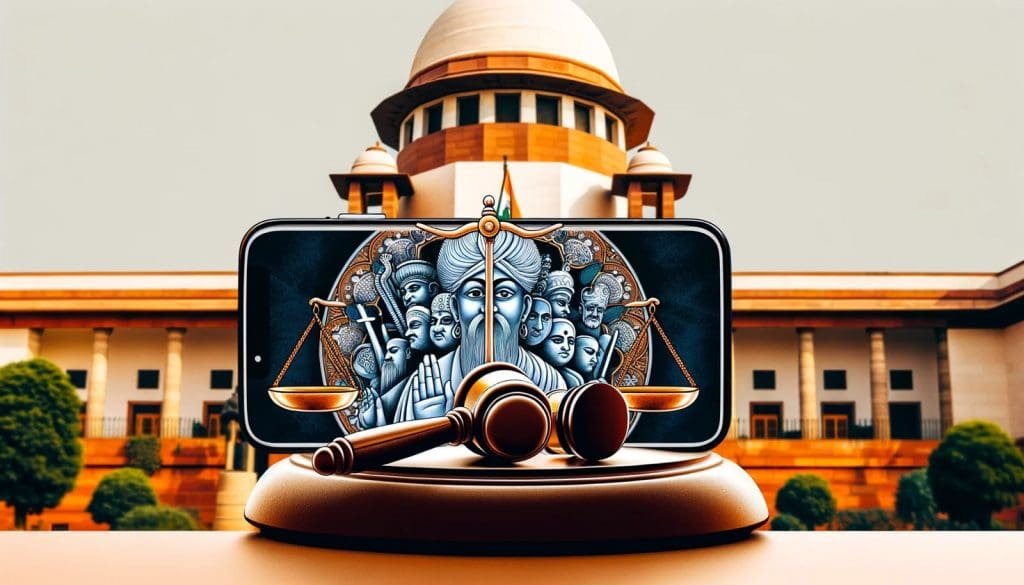
The Supreme Court of India issued a pivotal judgment questioning the constitutionality of Uttar Pradesh’s anti-conversion law in light of Article 25, which guarantees the freedom of conscience and the right to freely profess, practice, and propagate religion. This case has ignited extensive debate on the balance between religious freedom and state regulation.
Case Background
The challenge to the Uttar Pradesh Prohibition of Unlawful Religious Conversion Ordinance, 2020, was brought by a coalition of human rights groups and individuals. They argued that the law imposes unjustified restrictions on religious conversions, infringing upon fundamental rights guaranteed by the Constitution. The petitioners contended that the law is overly restrictive and targets individual freedoms and autonomy.
Court’s Observations
The Supreme Court bench, comprising Justices B.R. Gavai and Sandeep Mehta, critically examined the provisions of the Uttar Pradesh anti-conversion law. The court expressed concern that the law might violate Article 25 of the Constitution, which protects the right to religious freedom.
Justice Gavai remarked, “Article 25 guarantees the freedom of conscience and the right to freely profess, practice, and propagate religion. Any law imposing unreasonable restrictions on these rights warrants thorough scrutiny for its constitutional validity.”
Key Implications
- Reaffirmation of Religious Freedom:
- The Supreme Court’s scrutiny underscores the paramount importance of religious freedom in India. It reaffirms that individuals have the constitutional right to choose and practice their religion without undue interference from the state.
- Potential Legal Reforms:
- This case could lead to a re-evaluation and amendment of not only Uttar Pradesh’s anti-conversion law but also similar laws in other states. The scrutiny may drive reforms to align these laws with constitutional principles, ensuring they do not infringe on fundamental rights.
- Public Discourse on Religious Autonomy:
- The court’s observations have sparked a broader public discourse on religious autonomy versus state regulation. This case highlights the ongoing tension between protecting individual freedoms and addressing concerns about forced conversions.
Reactions and Analysis
The Supreme Court’s observations have elicited a range of responses from legal experts, human rights activists, and political leaders. Legal scholar Arjun Mehta noted, “This scrutiny by the Supreme Court is essential to ensure that state laws do not infringe upon fundamental rights. It is a reminder that all legislation must conform to constitutional values.”
Human rights advocate Priya Singh commented, “The anti-conversion law in Uttar Pradesh has faced criticism for being overly restrictive and potentially targeting minority communities. The Supreme Court’s intervention is crucial for safeguarding religious freedoms.”
Conversely, supporters of the law argue that it is necessary to prevent forced conversions and protect vulnerable populations. Political analyst Rajesh Kumar stated, “The state has a duty to protect its citizens from coercion and exploitation. The law aims to address these issues, and it is essential to balance protecting individual rights with preventing misuse.”
Conclusion
The Supreme Court’s examination of the Uttar Pradesh anti-conversion law represents a significant development in the debate over religious freedom in India. By questioning the law’s alignment with Article 25, the court reinforces the importance of constitutional safeguards for individual rights. The outcome of this case could lead to critical legal reforms and shape the future of religious autonomy and state regulation in India.